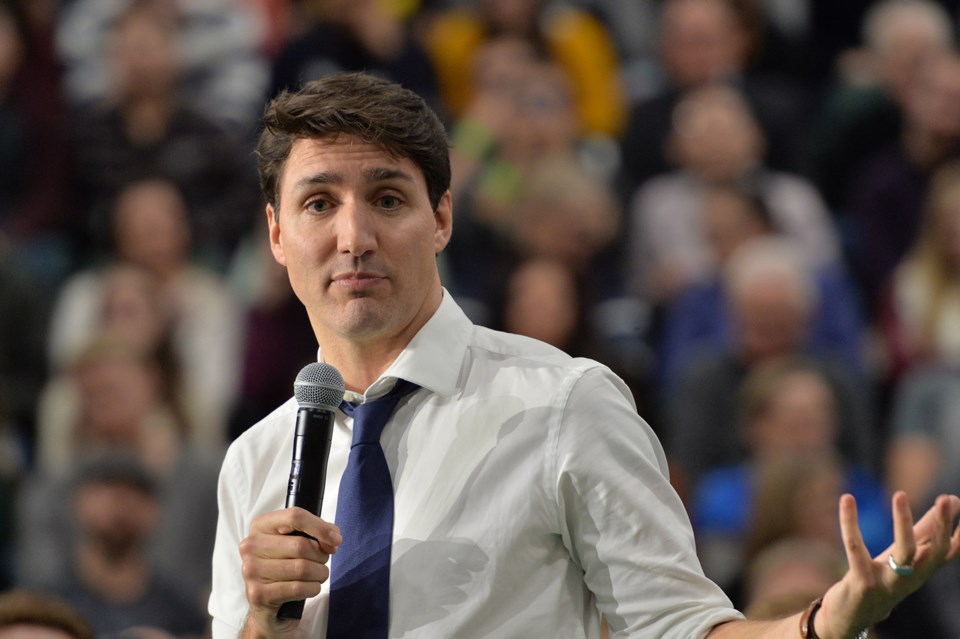As we ring in the New Year, I wanted to write something positive about the year to come. Many Happy New Year messages I received went something like: “Let’s hope it’s not too terrible” or “It’s not looking good for 2025.”
People are down, and rightly so. Everything costs too much, wages are stagnant and housing costs are out of control. All our systems (healthcare, legal, education, etc.) are overwhelmed and struggling. These problems are not limited to B.C., Canada or even North America — the world seems poised in a precarious place.
Nonetheless, I believe there is still good to be found and focusing on the positive might help adjust our attitudes to see and forge a better way forward.
Earlier this year, I wrote about a day I spent in an emergency room waiting room in B.C. and had my eyes opened to the shocking reality of the struggles of our healthcare system. Clearly, our healthcare system is in trouble.
At the same time, our federal government is also at the breaking point. We will be going to the polls in 2025, no later than October, but likely sooner. Prime Minister Justin Trudeau is deeply unpopular, but I’m not convinced there is anyone better poised to lead us.
Given those nasty realities, here’s a positive story you may have missed, one that combines both B.C.’s troubled healthcare system and our shaky federal government.
British Columbia was the first government in Canada to make birth control free when it did so in April 2023. For the rest of that year, more than 188,000 people were able to benefit, saving about $300 a year on birth control pills or $400 upfront for an IUD.
The University of British Columbia has just come out with research, reported in the Globe and Mail, which shows a shift by women to those more reliable and long-acting types of birth control since they were made free, as well as a rise in the number of women using any form of birth control.
This is good news, even if you only look at it from a fiscal perspective and ignore the emotional consequences: providing free birth control is cheaper than paying for the termination of an unwanted pregnancy. It’s also less risky and far, far healthier emotionally.
Manitoba also made birth control free earlier this year, but so far, those are the only two provinces to do so.
Meanwhile, the minority federal government, under pressure from the NDP to create a national pharmacare program, announced last May that it would make birth control and diabetes medications, like insulin, free across the country in 2025, as a first step.
B.C. will be able to show them how it’s done in terms of birth control. Like unwanted pregnancies, diabetes is far less devastating and expensive if it is controlled by medication than if it advances.
The federal government also introduced a dental plan for uninsured seniors and children, a first step in a national dental plan. Of course, the initial steps towards national drug and dental plans are not guaranteed if another government comes into power.
B.C. agreed to fund diabetes medications covered under the federal plan as of April 2025 and announced it would also cover hormone replacement therapy since it already covered birth control. The province also announced it would cover the first round of in vitro fertilization (IVF), an infertility treatment for people who are having difficulty conceiving a baby, as of April 2025.
“For people wanting to start a family, infertility and other barriers to parenthood can take a real toll on their well-being,” said Premier David Eby. “Being able to have a child shouldn’t depend on how much money you make, who you love or your relationship status.”
The average cost of one round of IVF is between $15,000 and $20,000 and several other provinces in Canada already provide some coverage for IVF.
I know that covering the cost of some niche medical treatments or pharmaceutical drugs does not make up for staffing shortages, long wait lists and an overwhelmed healthcare system. But for those people whose lives can be improved, these minor tweaks will make a difference.
Covering a drug or two won’t make a dent in creating world peace, but our ability to focus on small positive steps might help us get there.
Tracy Sherlock is a freelance journalist who writes about education and social issues. Read her blog or email her [email protected].
📣 Got an opinion on this story or any others in Richmond? Send us a letter or email your thoughts or story tips to [email protected].
📲 To stay updated on Richmond news, sign up for our daily headline newsletter.
💬 Words missing in article? Your adblocker might be preventing hyperlinked text from appearing.



